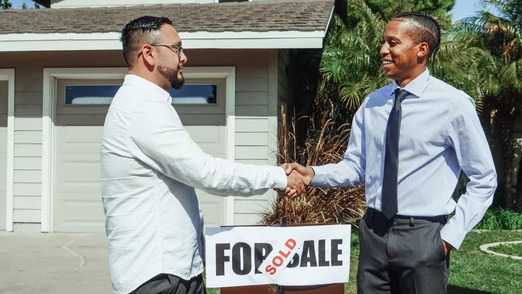Endorse that Title Policy
- Every property owner needs to buy title insurance when purchasing real estate.
- But beware that a title policy has large exceptions that can severely limit the amount of coverage.
- As a result, its very important for a property owner to understand which endorsements it should buy to add to the title policy.
When I was looking around for something to write about this week, I didn’t see too much breaking news. Other than, of course, another decision by the Austin Planning Commission to recommend limiting density when the exact opposite is what we need. But I figured y’all would be tired of hearing me howl at the moon about that again. So … maybe next week.
In the meantime, I figured it would be good to write about title policies. Like almost all insurance policies, title policies can be very confusing and difficult to understand. But they are absolutely necessary when buying real estate.
There is too much to talk about to cover all of your policy in one blog entry. So this week I am just going to talk about endorsements. What are they? And why do you need them? Well … keep reading and you will find out.
The Basics of Endorsements
Before we talk about the basics of endorsements, I’ll give just a brief overview of title policies in general. You may know this but title insurance protects property owners and lenders from a financial loss as a result of a defect in title. So if you purchase a property and, after closing, another person makes an ownership claim on all or part of the property, if you have title insurance, the title company will have to defend your claim and insure you against loss.
A title policy has limits, however, to how much coverage it provides. So, for example, if there are any known potential defects in title prior to the purchase of the property, those would not be covered. And that’s where endorsements may come in.
Title endorsements provide additional coverage to the property owner that is not originally included in the policy. So with each endorsement you purchase, you are literally buying more title protection.
Why Endorsements Are Important
It should be pretty clear, therefore, why endorsements are important. Because title policies – while good, are limited. If you are familiar with them, you know that (in Texas) there is a large Schedule B that excludes lots of provisions from the policy. Your insurance policy, therefore, may have significant gaps in it.
That’s why you want to buy endorsements. Because they help fill in some of those gaps. And provide you more complete coverage against title defects.
Texas Title Endorsements
The logical next question, therefore, is which endorsements should you buy? That’s a question I just cannot answer in a blog post. Texas has a lot of endorsements available. Which ones you should purchase are very specific to your particular commercial real estate purchase. You need to investigate the endorsements and see what fits your scenario. Or – better yet – hire Bukowski Law Firm to do that for you.
Having said that, there are a few that are very common and are often purchased by property owners. Some of those are:
- T-19.1 – This is the “MER” endorsement. It provides coverage for minerals, encroachments, and restrictions. It covers damage from a future extraction of minerals by the mineral owner, and undisclosed encroachments or restrictions on the property.
- T-23 – Access Endorsement. It provides coverage if the property does not have access to a specific street.
- T-25 – Contiguity Endorsement. If the property you are buying has more than one parcel, this endorsement will insure against loss if the two parcels are not contiguous.
Survey Amendment – By purchasing this amendment, you have more protection from any errors in the survey.
That is just a small sampling of the many, many title endorsements that are available. Whether they, or any other endorsements, are appropriate for your purchase is something you need to analyze on a case by case basis. But please make sure you do that analysis because the additional coverage is so very important.
The lawyers at Bukowski Law Firm are ready to help you determine which endorsements you need. So if you are buying a commercial property, give us a call at 512-614-0335 and we can work together to make sure your investment is protected.


